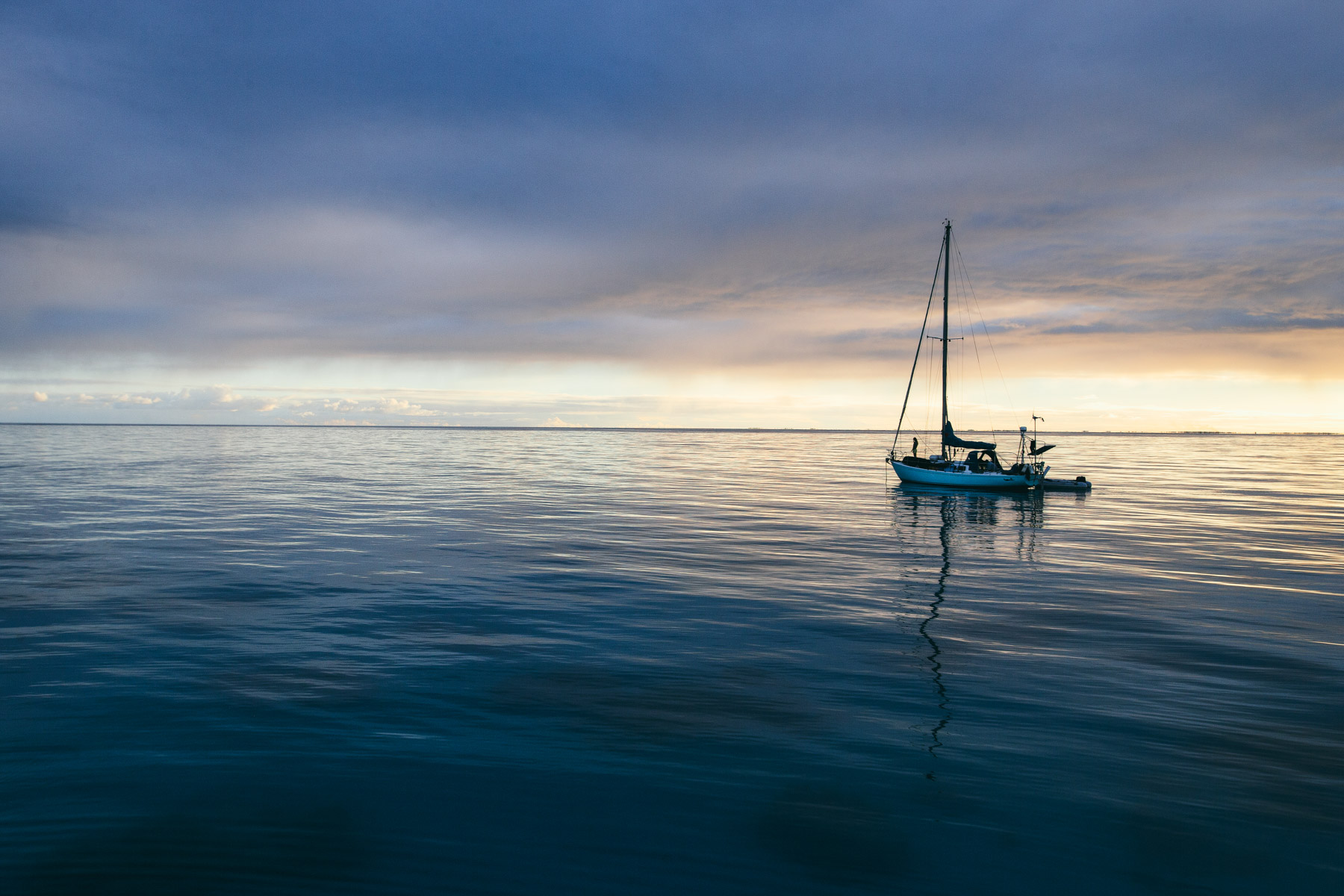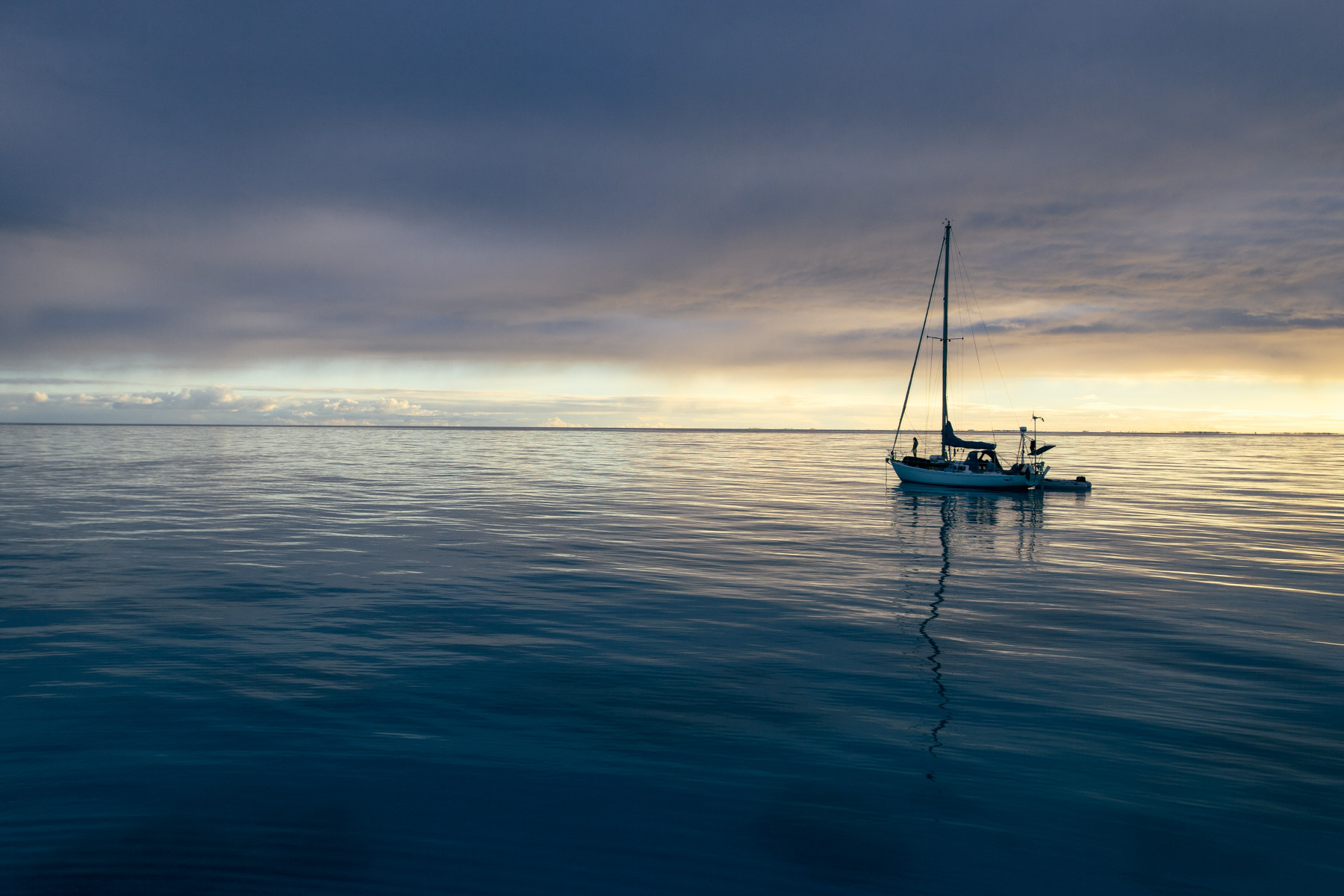Words and photos by Jody MacDonald for Patagonia and Sidetracked Magazine.
I feel like shit…again. As the boat lurches I try to find that sweet spot where my stomach feels stable. Try to find some reprieve within this fiberglass version of a popcorn air machine.
Mentally, I try to find my happy place. For a lot of people that’s some remote, uninhabited island with turquoise water lapping gently on a sandy beach with palm trees swaying in the wind. The proverbial picture postcard. Not me, I’m already there. I’m in ‘paradise’. My happy place at the moment is lying on a couch on a surface that isn’t moving.
I’m currently on a 60 foot catamaran named Discovery which I co-own with my business partner. She’s been wandering around the world since 2006 on a mission to and remote wind and waves on a series of blue-water kitesurfing and surfing expeditions. She’s circled the Earth twice. The expedition is called the Cabrinha Quest, our answer to quenching an insatiable need for adventure and exploration. We have taken considerable pride in escaping the ‘milk run’, going to places that most sailors never consider. Doing so requires a lot more creativity, a lot more risk, a lot more work… and a rock-solid stomach.
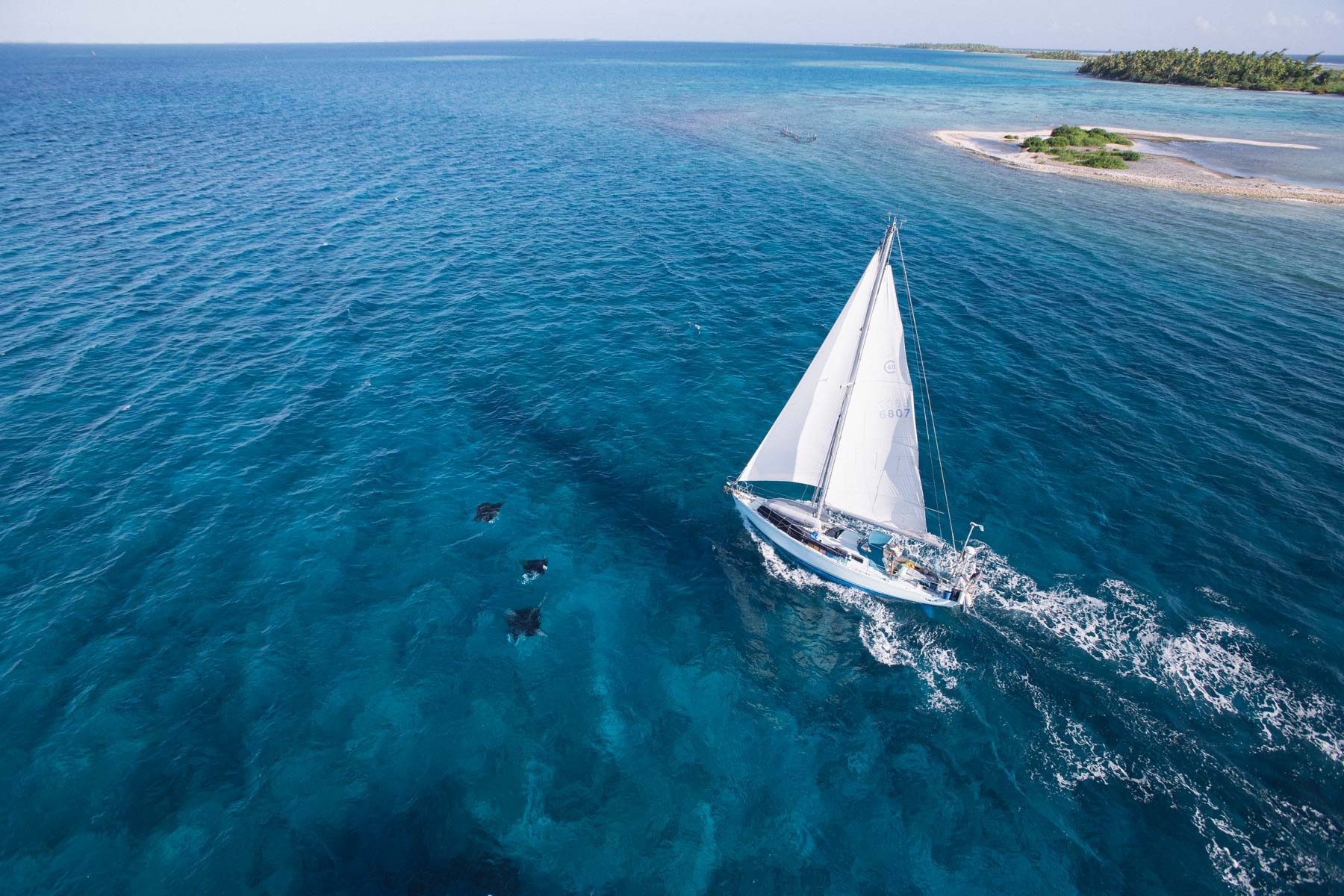
Right now we are most definitely OFF the milk run and my stomach is in violent protest. I’m heading to a remote area of the Society Islands to meet up with the renowned surfer and explorer Liz Clark and her boat Swell. Liz is well known in the adventure community, part of an all-star cast of explorers that are famous only on the fringe. National Geographic recognised her this year as an ‘Adventurer of the Year’ for her remarkable achievements in solo sailing and conservation. Liz left Santa Barbara, California back in 2005 aboard her 40ft. sloop and sailed south with hopes of eventually making it around the world. She spent a year-and-a-half sailing through Mexico and Central America before setting off for French Polynesia. Liz’s goal has always been to be as self-suf- cient as possible. Most of the time Swell is propelled by the wind. The engine is for emergencies only and her refrigerator and electronics are powered by a combination of solar and wind power. Whenever possible she eats only locally grown food, and often forages for coconuts, fruit and fish on her own.
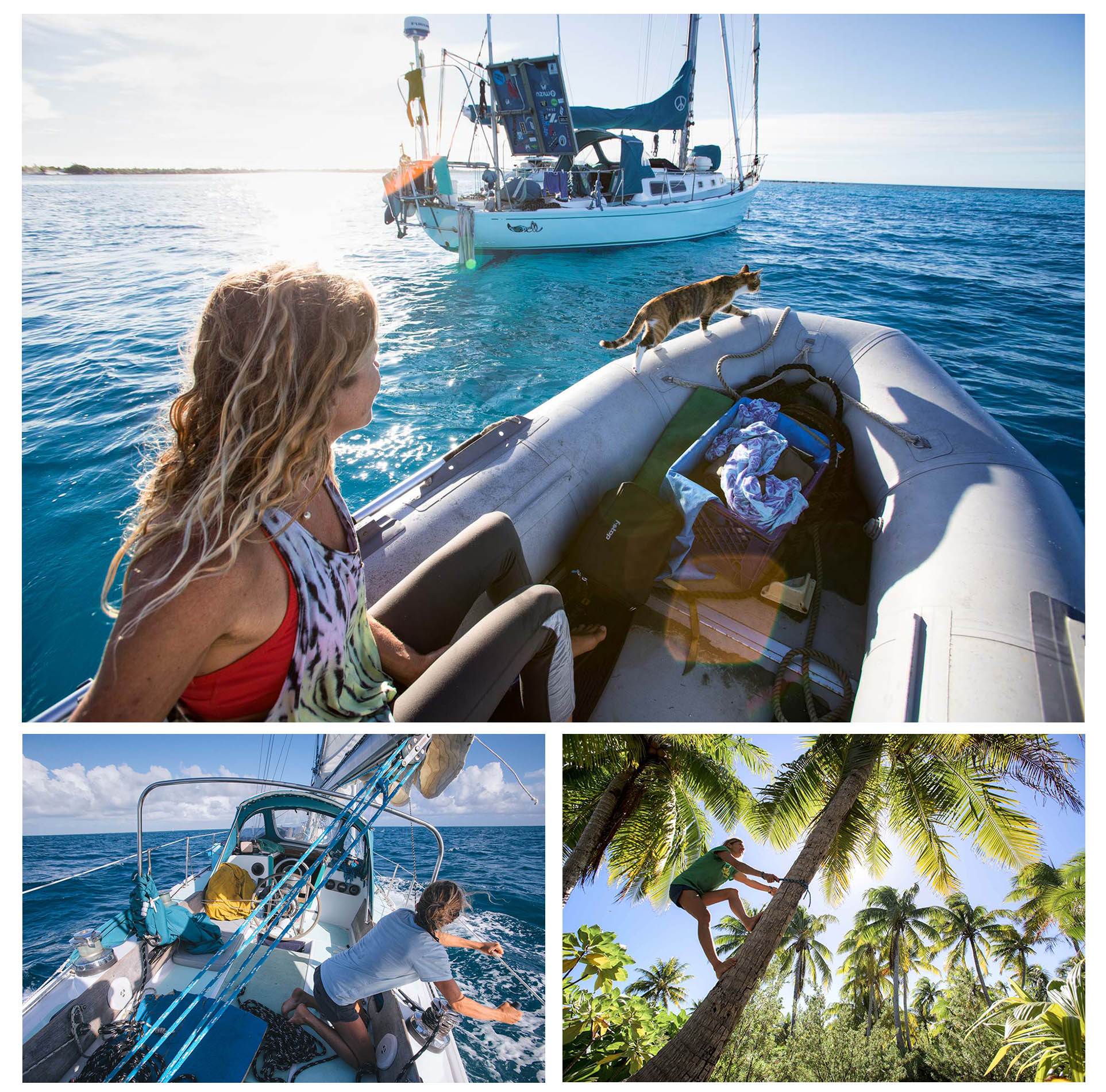
Besides fulfilling her insatiable love of surfing, French Polynesia’s island communities provide a platform for Liz philanthropic endeavours. She organises local beach clean ups and speaks in schools to educate kids on the impacts of trash; specifically plastics and how it effects their environment. She continues to immerse herself further into the culture and wilderness of the outer islands and atolls: sailing, writing, reading and constantly finds ways to reduce her carbon footprint.
I met Liz in a boat yard in Raiatea back in 2008. She probably doesn’t remember the brief encounter but I knew who she was. She had made a name for herself in the sailing community as a young solo female doing everything on her own. Boats are in constant need of maintenance and repairs and she was covered in oil and grease and caulk, performing a refit on her cherished vessel. She made a huge impression on me and somehow I knew our paths would cross again.
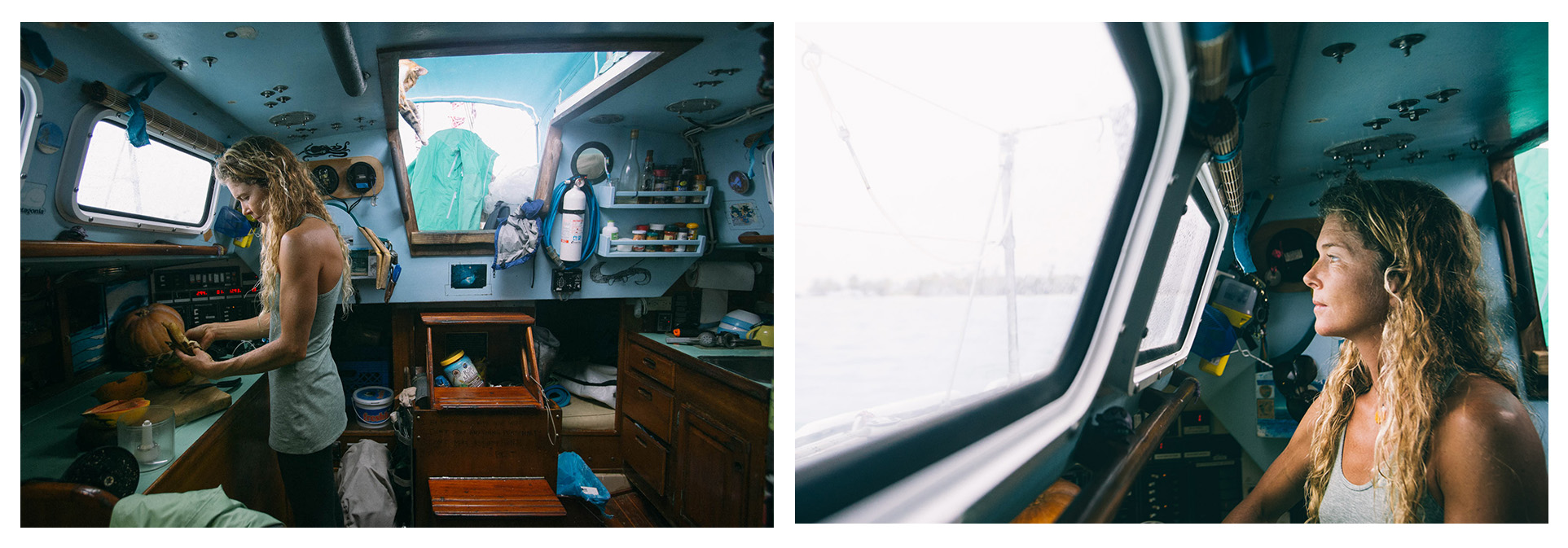
It takes a huge leap of faith and an enormous amount of con dence to set off by sail around the world. A lot of people have the dream, but how many actually go for it? Now take that minuscule number and trim it down to a handful at best when you head off by yourself. And then let’s bring gender into the equation and you have a grand total of one. Liz Clark.
We enter the calmer waters of an atoll and I can nally get vertical and move around. Our horizon of palm trees and turquoise water is even more magnificent than the postcard. I can’t help but think how these islands must have looked when the early Explorers found them.
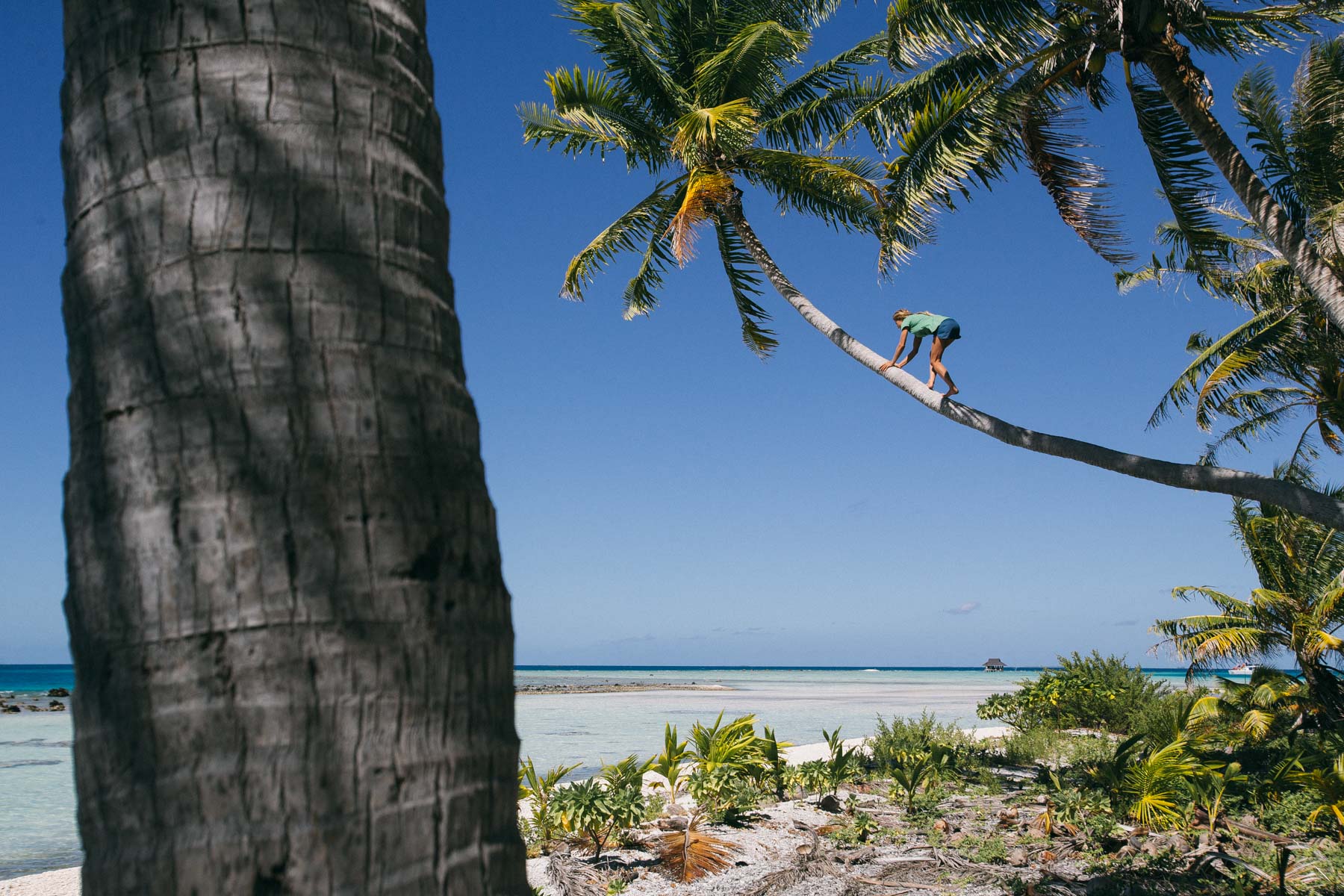
‘I wish I could tell you about the South Pacific. The way it actually was. The endless Ocean. The in nite specks of coral we called islands. Coconut palms nodding gracefully toward the ocean. Reefs upon which waves broke into spray, and inner lagoons, lovely beyond description.’ A piece by James A. Michener in Tales of the South Pacific. We are remote enough that probably not a lot of has changed from those early days of exploration and it brings a smile to my face. As the Atoll opens up before us I see Swell anchored peacefully.
In a lot of ways I have no idea how I got here. As long as I can remember I have loved adventure. My rst sailing experience was in university when a roommate asked some friends and me to spend three weeks sailing in the Gulf of Mexico on his father’s monohull. Always anxious for an adventure I quickly jumped at the opportunity. Those three weeks were absolute hell. Much of them were spent in a storm and I was violently sea sick, vomiting for days while his father, who had very little sailing expe- rience tried to navigate us to safer waters. I vowed when I got off that boat that I never needed to sail again. Been there, done that!
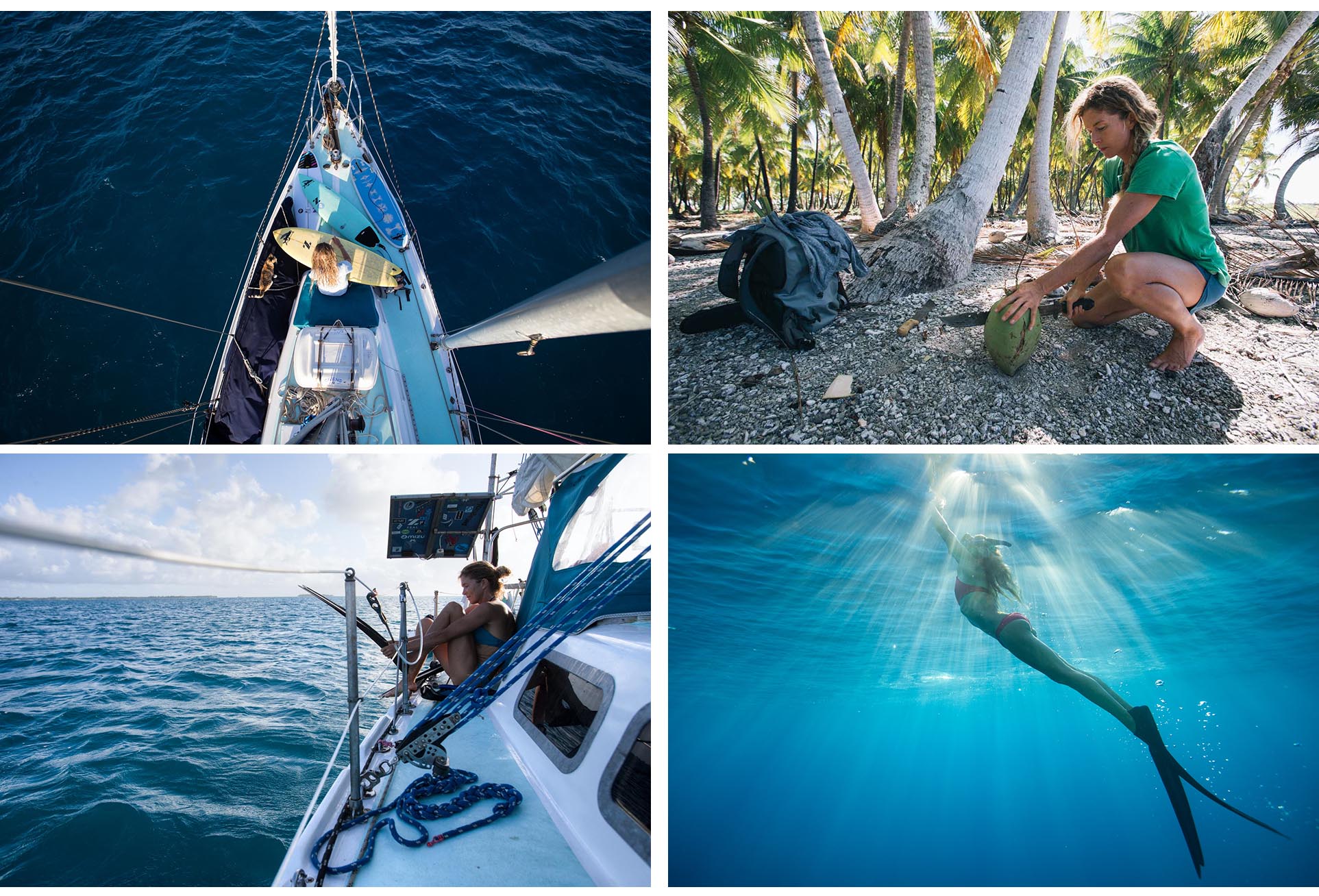
I still dislike sailing. But in the last decade I’ve sailed nearly 45,000 miles; traversed all three oceans; visited 42 countries; suffered through debilitating and nauseating sea sickness; parasites and infections as a result of travel in 3rd world countries includ- ing typhoid fever, E-Coli, giardia, and over a dozen bouts with staph. Why do I keep coming back? For the same reason that Liz has been out here for nine years. For the adventure. For the exploration.
After we anchor and I take the dinghy over to see Liz, she tells me about her grim passage to this atoll. She battled strong head winds and angry seas and took a horrible beating. She was seasick the whole way. Shit broke down that she hasn’t had a chance to repair yet. The correct response would be sympa- thy but I can’t help smiling. I know this reality. We have the same af iction. I’m not talking about our weak stomachs. If you haven’t lived it, it’s impossible to articulate. She too begins to smile because as we both know that we are about to reap the rewards of our toils.
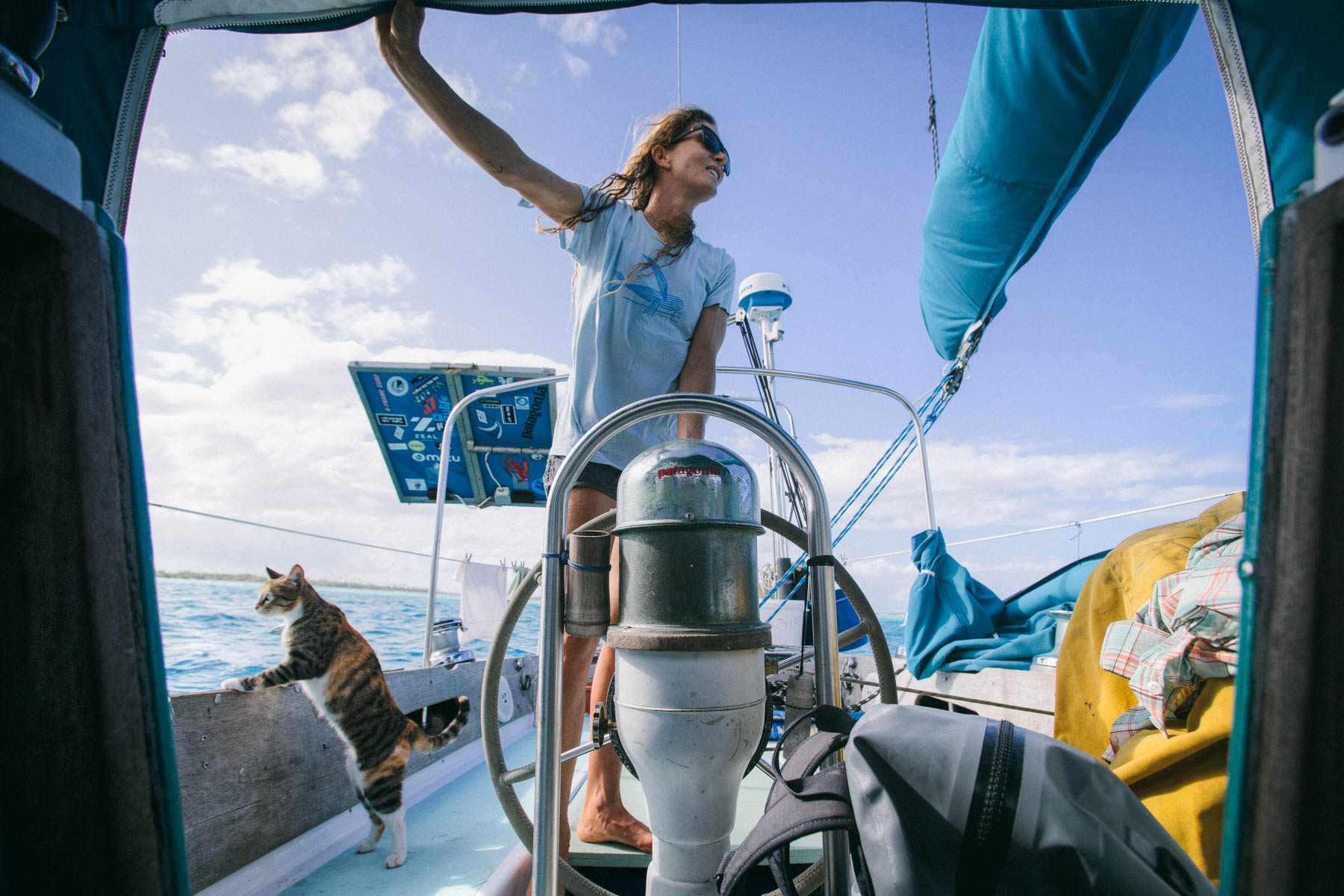
For the next ten days we succumb to the simple ebb and ow of the ocean and the adventure unfolds, like it always does when you get off the beaten track. We freedive the passes, surf the breaks, collect coco- nuts on the uninhabited islands while her cat Amelia explores and forages through the jungle. Waves lap the hull, trees sway in the breeze, smiles become permagrins that last well past the last day of the trip.
This is why we do it. Why we endure. I know if most people were given the opportunity to live this life they would quit after a few weeks. It’s a hard life. The hardest I’ve ever had. But like most things in life, the harder things have the greatest the reward. And in time the simplicity of this life is the siren call that cannot be ignored.
As our time together comes to a close Liz and I contemplate this life we’re living. You remember these days. These are the experiences that shape a person’s life. These are the times when time slows way, way down. Everything gets sharp. Everything is in focus. There are no distractions, there is nothing else going on at the periphery. The moments are pure and unfiltered. But they can’t go on forever. There is always an end. As we leave the protected waters of the lagoon, bound for our next adventure and my stomach lurches and the dread of what I know is coming returns I look back at Swell and smile know that Liz is feeling the same thing. We will suffer, and it’s worth it.
